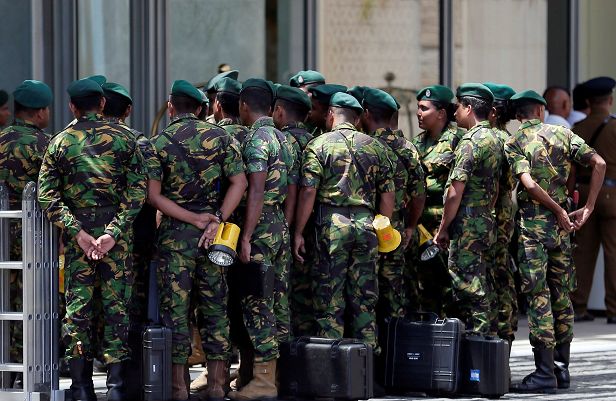
Sri Lanka bans face coverings after Easter Sunday bombings

Sri Lanka has banned face coverings in public, following multiple suicide bombings on Easter Sunday that killed more than 250 people and injured hundreds.
President Maithripala Sirisena said the law would be effective from Monday, and was meant to ensure security.
The law did not specifically name burqa, niqab or hijab worn by many Muslim women. A burqa is an outer garment that covers the entire body and the face, a niqab is a veil that also covers the face, while a hijab covers only the hair.
The All Ceylon Jamiyyathul Ulama (ACJU), the top body of Islamic scholars in the South Asian island nation, backed the move on security grounds.
The group had earlier issued guidance asking Muslim women to avoid wearing face veils in the public, but added it was opposed to legislation.
Muslims make up roughly 10 percent of Sri Lanka’s population.
Sri Lanka is still on high alert following those bombings, and authorities have deployed more security personnel across the capital Colombo.
Eight explosions rocked the South Asian country, most hitting churches and hotels in and around Colombo.
The explosions came as Christians worldwide celebrated Easter Sunday, one of the most important events in the Christian calendar.
Following the blasts, the Sri Lankan government declared a 6PM to 6AM curfew in the country with immediate effect. Some social media sites were also shut down, including Facebook.
Dozens of people have been arrested in connection with the explosions as police continue with investigations.
Islamic State has claimed responsibility for the attacks but has not provided any evidence to support their claims.






